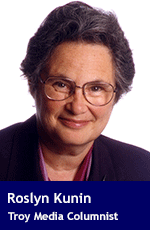Its assumption for proposing a home equity tax, that all homeowners are wealthy, is baseless
 The congregation I belong to enjoys a potluck meal after weekly services and likes to contribute to those in need in the community. When an elderly woman who looked like she really needed a meal started dropping in at lunchtime, she was welcomed and fed. She enjoyed the food and the company. There did not appear to be any family or friends in her life.
The congregation I belong to enjoys a potluck meal after weekly services and likes to contribute to those in need in the community. When an elderly woman who looked like she really needed a meal started dropping in at lunchtime, she was welcomed and fed. She enjoyed the food and the company. There did not appear to be any family or friends in her life.
She died soon after and left $1,000,000 to be given to charity. Where did this old lady who did not have enough money to keep herself fed get a million dollars? It was from the sale of the old and badly maintained house she owned and lived in. She had not found a way to turn her one asset into an income stream to cover her everyday expenses.
I thought of this lady when a proposal was put forward to tax homeowners annually on the equity in their homes. This would be in addition to the city taxes that homeowners already pay.
 Photo by CDC |
| Related Stories |
| Taxpayers need to take action against talk of a home equity tax
|
| Trudeau must prove he won’t tax our homes
|
| Trudeau’s policies a recipe for economic decline
|
Generation Squeeze, an organization focused on younger people’s struggles to afford homes, is proposing to tax home equity. The organization is showing more than a little resentment against older people who already have homes. Its image of older homeowners is very different from the old lady described above. It assumes that anyone who owns a home not only has a place to live but also has a high enough income and sufficient cash assets to pay almost unlimited taxes.
How much tax? One million-dollar homes would be taxed 0.2 percent of their value initially, rising to 0.5 percent over time. That would be $2,000, increasing to $5,000 annually. Homes assessed at $2 million would be taxed at one percent each year or $10,000. The unstated assumption is that homeowners are old and rich and can easily afford to pay additional taxes at this level and that they have sufficient wealth or income streams to do so.
To justify this significant financial burden on homeowners, Generation Squeeze points out that many people didn’t have to work to achieve the large increase in their property’s value. They bought when prices were low and just watched them rise. The fact that they bought what were then inexpensive houses shows they weren’t especially wealthy, and many didn’t have particularly high incomes at the time.
Now, many of these homeowners are older, often in or near retirement. At this stage of life, most Canadians find their incomes and savings diminishing. Seniors in Canada have incomes that are roughly two-thirds of those of working Canadians, and over a quarter of seniors are so poor that they need government supplements.
Including government assistance, a single senior receives about $35,000 annually, while a couple gets around $65,000. Many seniors and others with similar incomes must already defer their city property taxes. Can they really afford additional tax bills amounting to thousands of dollars each year?
These stereotypes seemed to be in mind when the Trudeau government introduced the increase in the capital gains tax. Would you be surprised to learn that many capital gains went to average Canadians who had worked hard, saved, and counted on modest gains to keep themselves and their families above the supplemented income level in retirement?
Similarly, simply owning a home does not guarantee one has wealth or a high income. Imposing a tax on homes valued at $1 million and above does not ensure it will only impact those who can afford it. In major Canadian cities, $1 million only gets you a very average home. It reminds me of the old joke: “I always wanted a million-dollar home. I always thought it would be bigger.”
The high cost of housing, especially for young people, is a serious problem that hasn’t been adequately addressed. Solving it requires good government policies and additional tax revenue. But these taxes must be based on a real and accurate understanding of the Canadians paying them, not on overgeneralized ideas about who is wealthy.
Dr. Roslyn Kunin is a Troy Media columnist, public speaker and consulting economist.
For interview requests, click here.
The opinions expressed by our columnists and contributors are theirs alone and do not inherently or expressly reflect the views of our publication.
© Troy Media
Troy Media is an editorial content provider to media outlets and its own hosted community news outlets across Canada.
